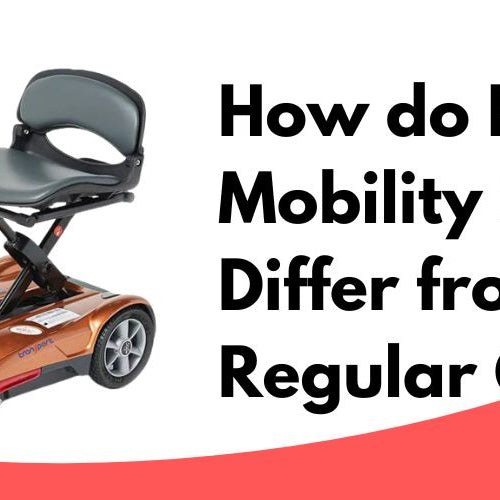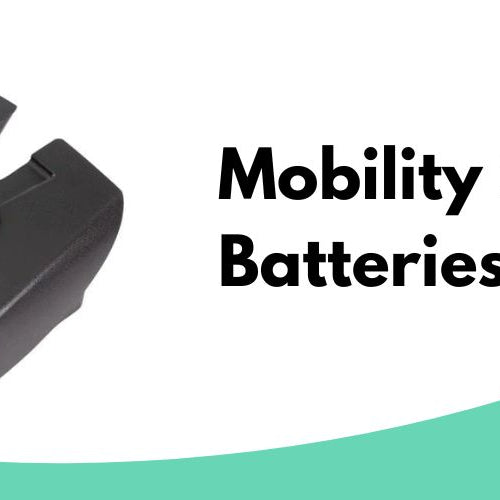Mobility scooters have become an essential means of transportation for many individuals with disabilities or mobility issues. They not only provide independence and freedom but also improve the overall quality of life for those who rely on them. This raises the question of whether mobility scooters are tax deductible. Understanding the eligibility criteria and deductions related to mobility scooters can help individuals make informed decisions when it comes to managing their expenses.
The Internal Revenue Service (IRS) in the United States allows for certain medical expenses to be tax deductible, including some mobility-related expenses. However, the specific eligibility of mobility scooters as a deductible expense may depend on individual circumstances. It is essential to determine if the purchase or modifications of a mobility scooter can be considered a qualified medical expense under IRS guidelines.
Additionally, it is important to take note that in some cases, extensive home modifications or vehicle adaptations related to mobility scooter usage might be eligible for tax deductions. For example, expenses related to modifying a driveway for easier access to a vehicle or acquiring a vehicle adapted for wheelchair use may be tax deductible as medical expenses. Therefore, in order to maximize potential tax deductions related to mobility scooter usage, individuals should explore all possible avenues and consult a tax professional or the IRS guidelines for further clarification.
Understanding Mobility Scooters and Tax Deductions
Definition of Mobility Scooters
Mobility scooters are battery-powered vehicles designed to assist individuals with disabilities or mobility issues in moving around with ease and independence. They often feature a seat over a three- or four-wheeled frame, with a flat area for the user to place their feet and handlebars for steering. These devices are specifically engineered to provide a means for people who have difficulty walking or standing for extended periods to maintain a level of freedom and autonomy in their daily lives.
What Are Tax Deductions?
Tax deductions are expenses that can be subtracted from an individual's taxable income, ultimately reducing the amount of tax they owe to the government. These deductions are often made for specific expenses directly related to one's work, healthcare, education, or charitable contributions, among other things. In essence, tax deductions help to provide financial relief and incentives for taxpayers who invest in particular goods and services.
When it comes to mobility scooters, they are considered tax-deductible as long as they are used to accommodate a disability or mobility issue. This means that people with disabilities who purchase mobility scooters are eligible for tax-exempt status, and they can also claim the cost of the scooter on their tax returns as a deduction. However, it is important to note that these deductions may only be applied if the medical expenses were not reimbursed by insurance and exceed 7.5% of the individual's income.
To claim mobility scooters as tax deductions, you can include them under the Medical Expenses Tax Credit category along with other assistive devices, such as prescription eyeglasses and hearing aids. The Medical Expense Tax Credit is a non-refundable credit that individuals can utilize to reduce their taxes, thereby providing some financial relief for those who have incurred significant medical expenses.
In summary, mobility scooters are tax-deductible when used to accommodate a disability, and their costs can be claimed as a deduction under the Medical Expenses Tax Credit. By understanding these tax deductions, individuals can take advantage of the financial relief and support provided by the government to maintain their independence and quality of life.
Criteria for Mobility Scooter Tax Deductibility
When determining if a mobility scooter is tax-deductible, several aspects must be considered. In this section, we will discuss the criteria for mobility scooter tax deductibility, focusing on two crucial factors: Medical Expense Deduction and IRS Guidelines for Medical Equipment.
Medical Expense Deduction
Mobility scooters can be tax-deductible if they are considered a medical expense. For a mobility scooter to qualify as a medical expense, the following criteria must be met:
- The individual must have limited mobility and require the scooter for daily activities.
- A doctor must prescribe the scooter as a medically necessary device.
- The scooter must not have been reimbursed by insurance.
If these conditions are met, the cost of the mobility scooter and any necessary equipment (such as a lift for the car) can be included as a medical expense on Schedule A of the individual's tax return.
IRS Guidelines for Medical Equipment
According to the Internal Revenue Service (IRS), medical equipment is tax-deductible if it is used primarily for the "diagnosis, cure, mitigation, treatment, or prevention of disease." Mobility scooters, when prescribed by a healthcare professional, fit this definition. Durable medical equipment (DME), like mobility scooters, is covered under Medicare Part B.
However, the IRS also sets limits on the amount that can be deducted. Medical expenses can only be deducted if they exceed 7.5% of the individual's adjusted gross income (AGI). In other words, if a person's AGI is $50,000, they can only deduct medical expenses that are more than $3,750.
When evaluating the tax deductibility of a mobility scooter, it is essential to consider these guidelines and consult a tax professional if necessary.
In summary, a mobility scooter can be tax-deductible if it meets specific criteria, including being considered a medical expense and adhering to IRS guidelines related to medical equipment. By understanding these factors and working with a tax professional, individuals can effectively claim this potential deduction on their tax returns.
How to Claim Mobility Scooter Tax Deduction
A mobility scooter can be tax-deductible as a part of medical expenses if it meets certain criteria. This section will provide you with the information on how to claim the tax deduction for your mobility scooter.
Itemizing Deductions
To claim the tax deduction, you will need to itemize your deductions on Schedule A of your tax return. Medical expenses, including the cost of a mobility scooter, are only deductible if they exceed 7.5% of your adjusted gross income (AGI). Make sure to calculate your total medical expenses and compare them against the 7.5% threshold of your AGI. If your total itemized deductions exceed the standard deduction, it is worth itemizing your deductions.
Documentation and Receipts
To support your claim for a mobility scooter tax deduction, you will need to keep proper documentation and receipts. Here's what you should have:
- A prescription, written order, or certificate from a medical practitioner stating that the mobility scooter is medically necessary for your mobility limitations
- The original purchase receipts for the mobility scooter and any additional equipment, like a lift or accessories
- Records of any maintenance, repairs, or improvements to the mobility scooter, as well as their associated costs
By keeping these documents and receipts organized and readily available, you will be able to support your claim for a mobility scooter tax deduction in case the Internal Revenue Service (IRS) asks for verification.
In conclusion, claiming a mobility scooter tax deduction requires you to itemize your deductions, ensure that your medical expenses exceed 7.5% of your AGI, and keep all necessary documentation for proof.
Potential Limitations and Considerations
When considering the tax deductibility of mobility scooters, it is essential to be aware of potential limitations and considerations that may impact eligibility. This section explores a couple of key factors to keep in mind: Income Thresholds and Alternative Financing Options.
Income Thresholds
One major limitation to consider is the income threshold for claiming medical expenses on your tax return. As per the Internal Revenue Service (IRS) guidelines, taxpayers can only deduct medical expenses that exceed a certain percentage of their adjusted gross income (AGI). Ensure that your mobility scooter's cost and any associated expenses surpass this threshold before pursuing a tax deduction.
To determine your eligibility, start by calculating your total medical expenses, including the cost of your mobility scooter and any related expenses. Next, compare this amount to the AGI threshold, which varies according to your tax filing status. Keep in mind that tax regulations change yearly, so it's essential to stay up to date with the latest IRS guidance.
Alternative Financing Options
If tax deductibility is not an option, alternative financing options for mobility scooters are worth considering:
-
Insurance: Some private health insurance plans cover mobility devices, including scooters. Contact your insurance provider to inquire about eligibility and coverage policies.
-
Medicare: For individuals with Medicare Part B, mobility scooters may be covered as "durable medical equipment" if deemed medically necessary by a healthcare professional. Ensure you meet all coverage criteria and understand any potential out-of-pocket expenses.
-
Grants and financial assistance: Numerous nonprofit organizations provide financial assistance to individuals seeking mobility devices, such as scooters. Research organizations in your area and their application processes.
By being aware of the potential limitations and considerations when exploring tax deductibility and alternative financing options for mobility scooters, you can make informed decisions about how best to cover the costs of this essential mobility device.
We would love to help you find the mobility scooter that fits your needs the most. Reach out to us at Mobility Nest today.






Leave a comment